Unlock the Episode: Listen and Download the Free MP3 from My Podcast Today!
SUMMARY
- Formulate Open-Ended Questions. The episode emphasizes the importance of asking open-ended questions that encourage SMEs to provide comprehensive responses. These questions can start with "who," "what," "why," "where," "when," and "how." By allowing SMEs to elaborate on their knowledge, instructional designers can uncover valuable insights and unexpected perspectives, enriching the learning experience.
-
Bridge the Gap Between Expertise and Novice Status. Acknowledging the SME's expert status and recognizing one's own novice position is essential. While SMEs possess subject matter expertise, the instructional designer's role is to interpret and convey this expertise effectively to learners. Potential discrepancies in design ideas should be navigated by valuing both perspectives, ultimately leading to a well-crafted course.
-
Prioritize SME's View of Essential Knowledge. Crystal highlights the significance of understanding the SME's opinion on what learners should grasp after completing the course. While learning objectives provide a foundation, the SME's insights enable designers to emphasize crucial concepts and explain them through the SME's preferred systems or explanations.
-
Address Learner Pain Points. Identifying potential challenges learners may encounter and areas where they may struggle is crucial. This insight aids in designing course segments, differentiating between fundamental concepts and advanced topics. By addressing these pain points, instructional designers can ensure a smoother learning experience.
-
Maintain Focus. Staying on track during SME interviews is vital to extract the needed information. Crystal advises designers to have a structured approach, consistently aligning questions with the specific information required for achieving learning objectives. If the conversation veers off course, bringing it back to the central focus helps maintain clarity.
INSPIRATIONAL QUOTES
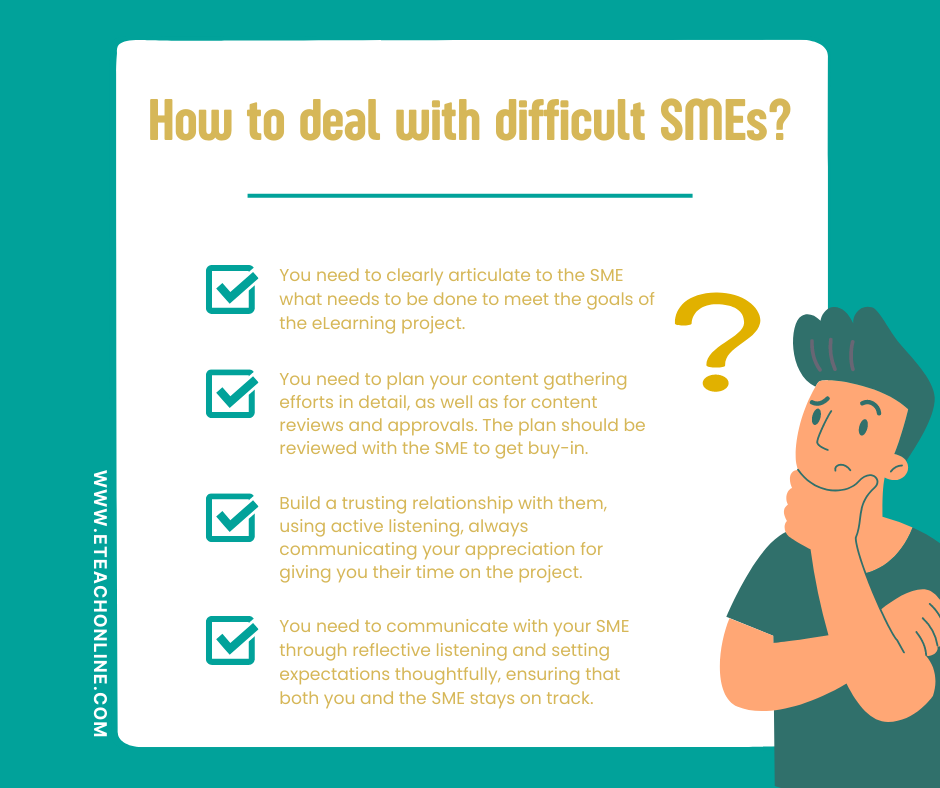
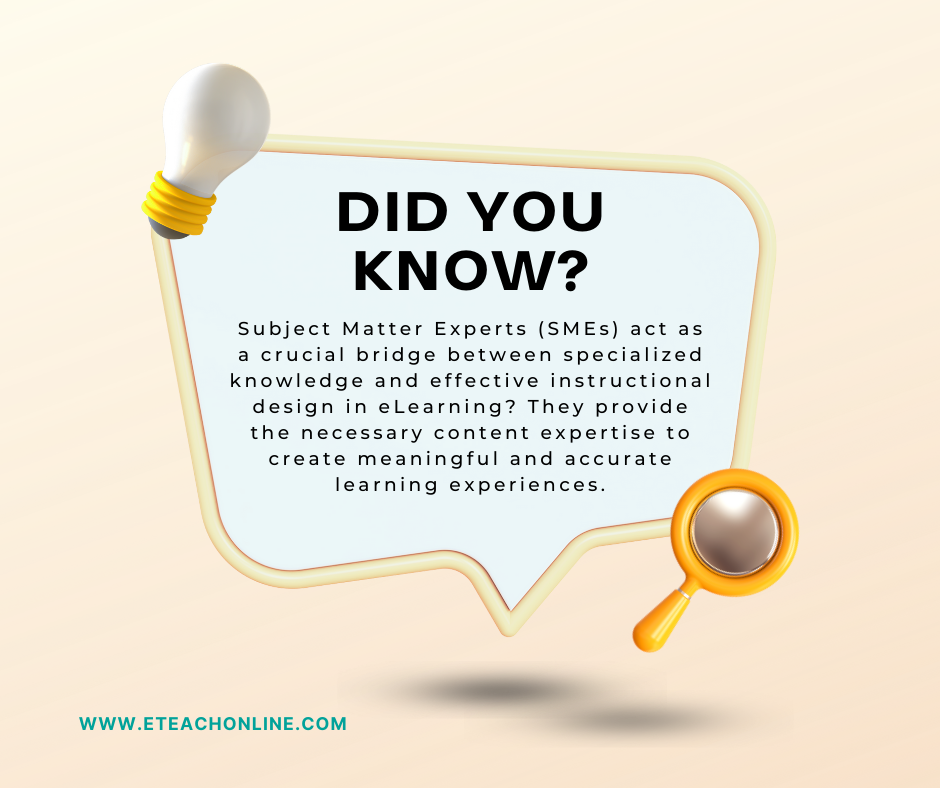
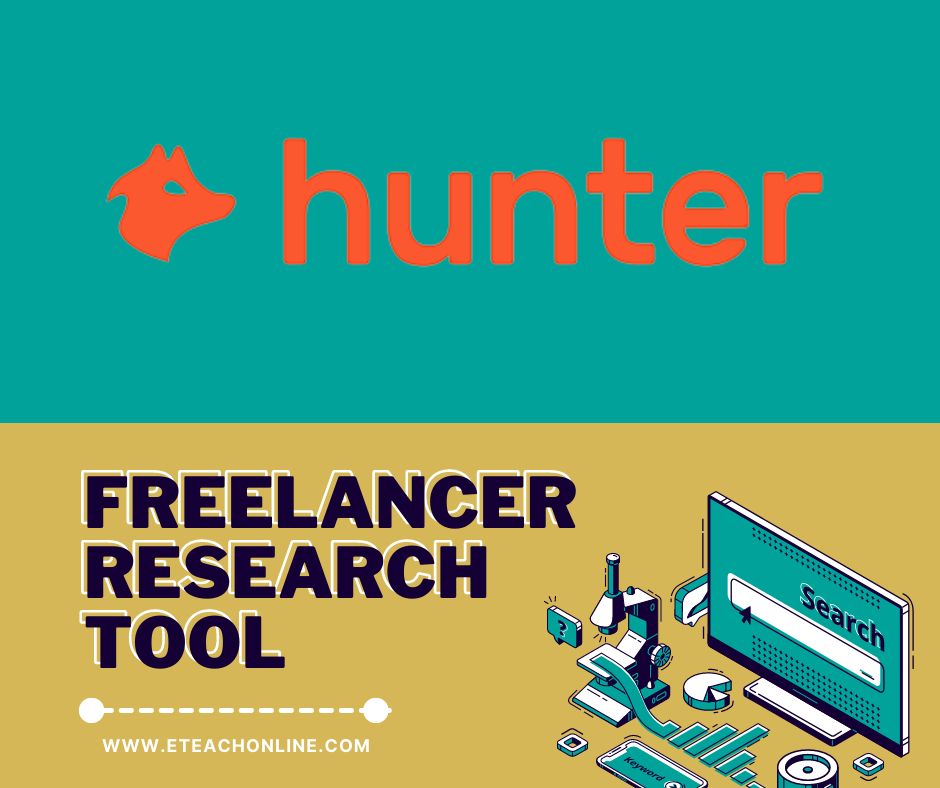
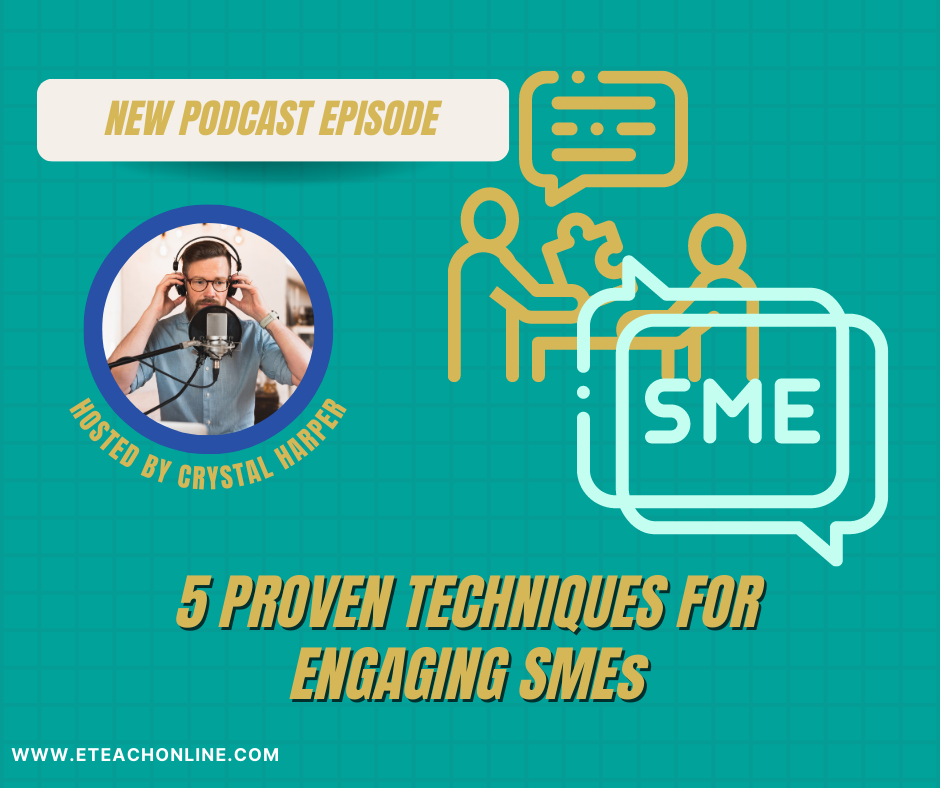
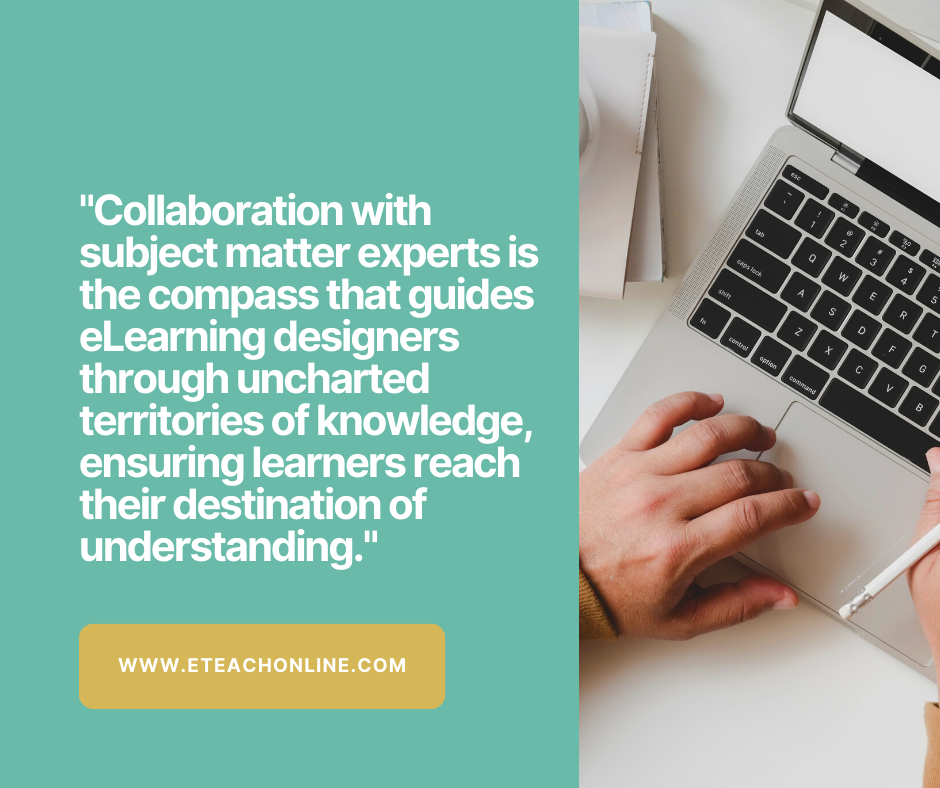
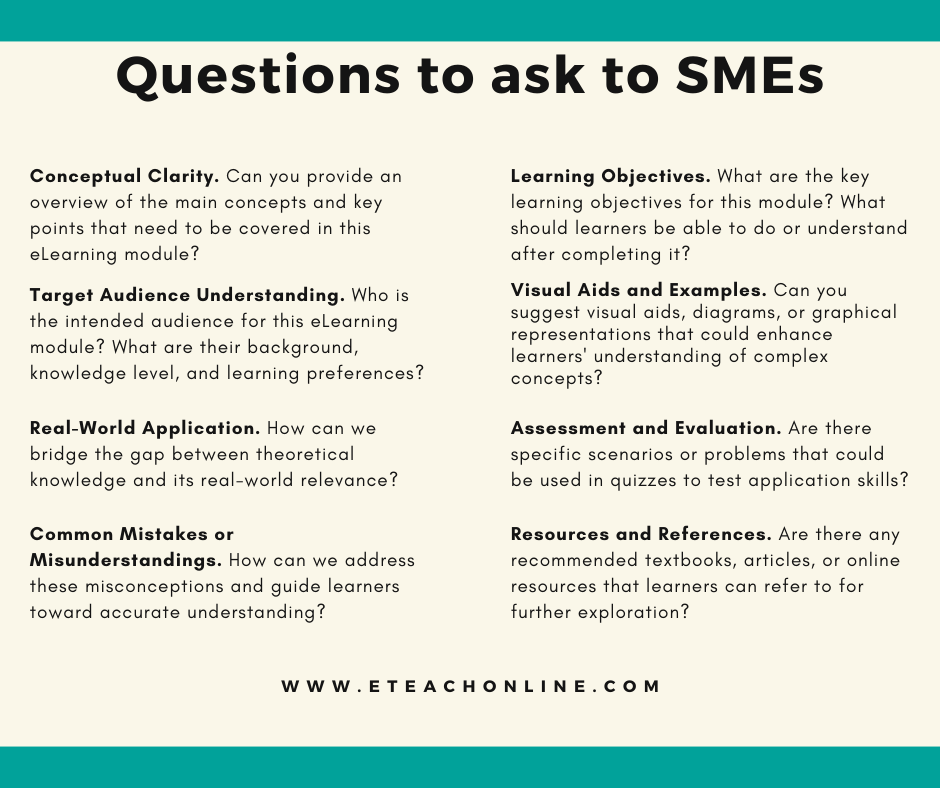
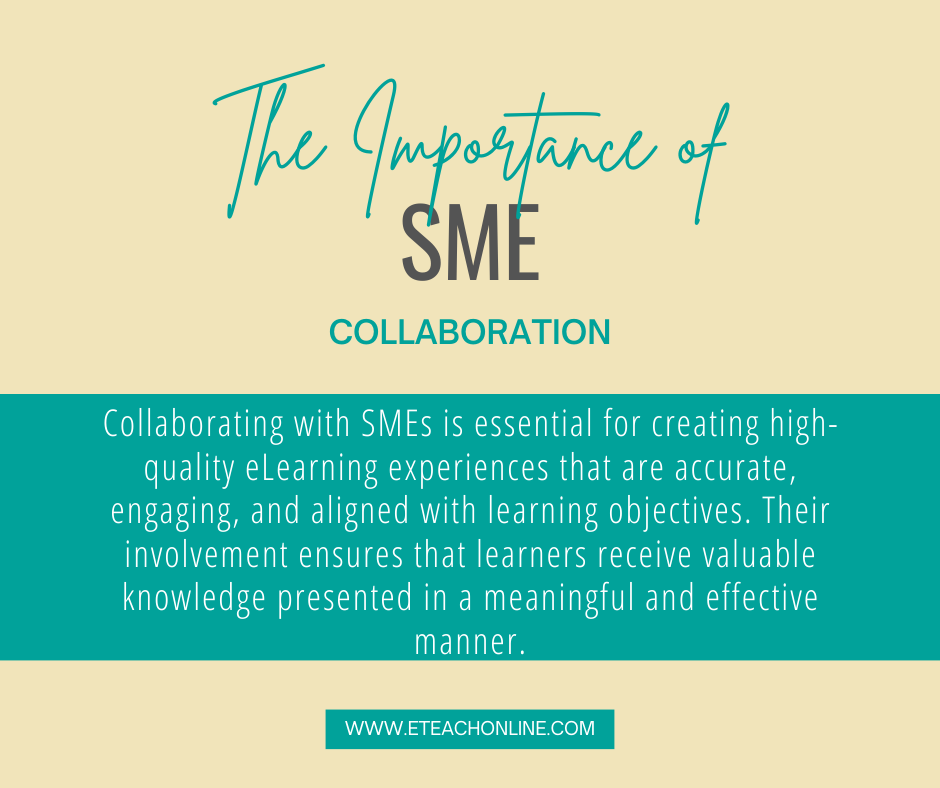
TRANSCRIPT
Hello, and welcome to the eLearning and Instructional Design for Beginners podcast, where new and aspiring instructional designers start, grow, and advance their careers in instructional design and online learning development. I'm your host, Crystal Harper. I'm a former school teacher who transitioned to instructional design, all while working full-time as a single mom. Would you like to become a successful instructional designer without the burden of earning another degree? Well then let's get started. And today's episode is going to be super helpful for you with determining the uncertainties you may be having about the next meeting you have with your subject matter expert because today's episode is about five tips for asking good subject matter expert instructional design interview questions. So let's get started. Hello and you're listening to the Focus on Freelance Instructional Design podcast. I'm Crystal Osterbuhr and in today's episode I'm going to talk to you about five tips for asking good subject matter expert or SME instructional design interview questions. But before we begin, in this week's freelancer tool of the week is called Hunter. An important component of any business is reaching out to potential customers, but choosing a professional email finding tool can be overwhelming. Hunter helps freelance instructional designers and business owners who are looking to build a database of professional contacts. This managerial tool can save you the time you would otherwise be spending on manual research for emails within websites. And you can also filter results to list only personal or role-based. Hunter is ideal for freelance instructional designers that need help verifying email addresses in cold outreach. I personally use it regularly for networking reasons. And some people are way more responsive via email as opposed to LinkedIn. And I also have the added extension, which makes its use even more convenient. All right, now let's move on to the main topic of today's episode. Are you currently wondering what questions you should ask in your next meeting with a subject matter expert or SME? Getting the information you need to produce the course that they want can be a challenge. Not only are there a lot of factors that you have to consider in order to successfully forecast the SME's vision, but there are also many potential questions you could ask them that it can become a fast and overwhelming decision to make. And while we all want to gather the perfect amount of information from our SME, if there is such a thing, it can be easy to get derailed and go off track during your meeting. But I'm here to make sure that you don't do that. The quality of the material that you get from an interview depends on the quality of the questions that you ask. In this podcast episode, I'm going to talk with you about five tips and topics to keep in mind while you're trying to determine the best questions to ask a subject matter expert during your next meeting. Number one, leave questions open-ended. The last thing you want are one-word answers from someone with a wealth of knowledge. Think who, what, why, where, when, and how. If you choose these bases in your SME interview questions, you'll have great material to work with afterward. You may even come across some interesting insights into the learning topic by letting the SME take the lead. Number two, remember that your goal is to understand the skills and knowledge the SME has, and to find a way to effectively express that knowledge to the learners. The person you're working with is a quote-unquote expert by definition, and most likely you are a novice compared to them. Though they are likely the sole reference of the knowledge of the content you're creating, there very likely might be a chance that the two of you have clashing ideas on how a learning experience should be designed and what should be included in the course. Number three, find out the SME's opinion of what the learners should be expected to know after completing the course. Now, of course, you should have a copy of the learning objectives, but it's a good idea to find out the SMEs perspective on what they think is particularly important for the learners to have an understanding of. Are there any systems or concepts that they use to explain a particular topic? Number four, make sure you find out about learner pain points that need to be addressed in the course. What potential might the learner face while learning? Where do people stumble? This information will make it easier to determine what should be in basic sections of the course and what should go into advanced topics. And number five, stick to a plan. As you determine the questions for your SME, make sure they stay focused on exactly what information that you're looking for. If you notice the conversation starting to go off topic, bring it back to the focus question, to the information that you need to ensure that the learning objectives are successfully achieved. And remember that there aren't always the perfect questions for subject matter experts. There's definitely no sure-fire way to find the perfect questions to ask an SME. The truth is, it probably doesn't even exist. As long as you put in the research, you'll find the best fit for the course that you're creating. And of course, there are many other questions that we need to ask for the project overall, but I've found that these topics and questions really help us focus on getting the best possible information from the SMEs and bring the most value to the learners. So be sure to use these go-to topics next time you need help determining questions for the SME. And remember to always rely on open-ended questions to help you with any unclear pieces of your outline development. Open-ended questions include who, what, when, where, why, and how. And if you need more help coming up with questions to ask the SME, be sure to download my free 15 questions to ask an SME when you're stuck. Or just hop into the ID plan Academy and we have got loads of courses that will teach you all about working with SMEs and then connect with other instructional designers and ask what they've been asking their SMEs and I also have plenty of other resources all related to SMEs and the Academy. So be sure to check that out. And then download your own free copy of 15 Questions to Ask an SME When You're Stuck.
JOIN THE
eLearning and Instructional Design for Beginners Community
- In-depth courses & training
Access my rapidly growing library, attend monthly live training & accountability support groups
- Exclusive tools & members-only discounts
Tools, templates, downloads, checklists and more - plus receive special perks & discounts
- Supportive community & network
Feedback and support from fellow instructional designers, career-driven business owners, and experts who will keep you on track
Get Your Software Toolkit for Instructional Designers
Tools & processes that will help you plan, build, and grow your instructional design career and freelance business.



